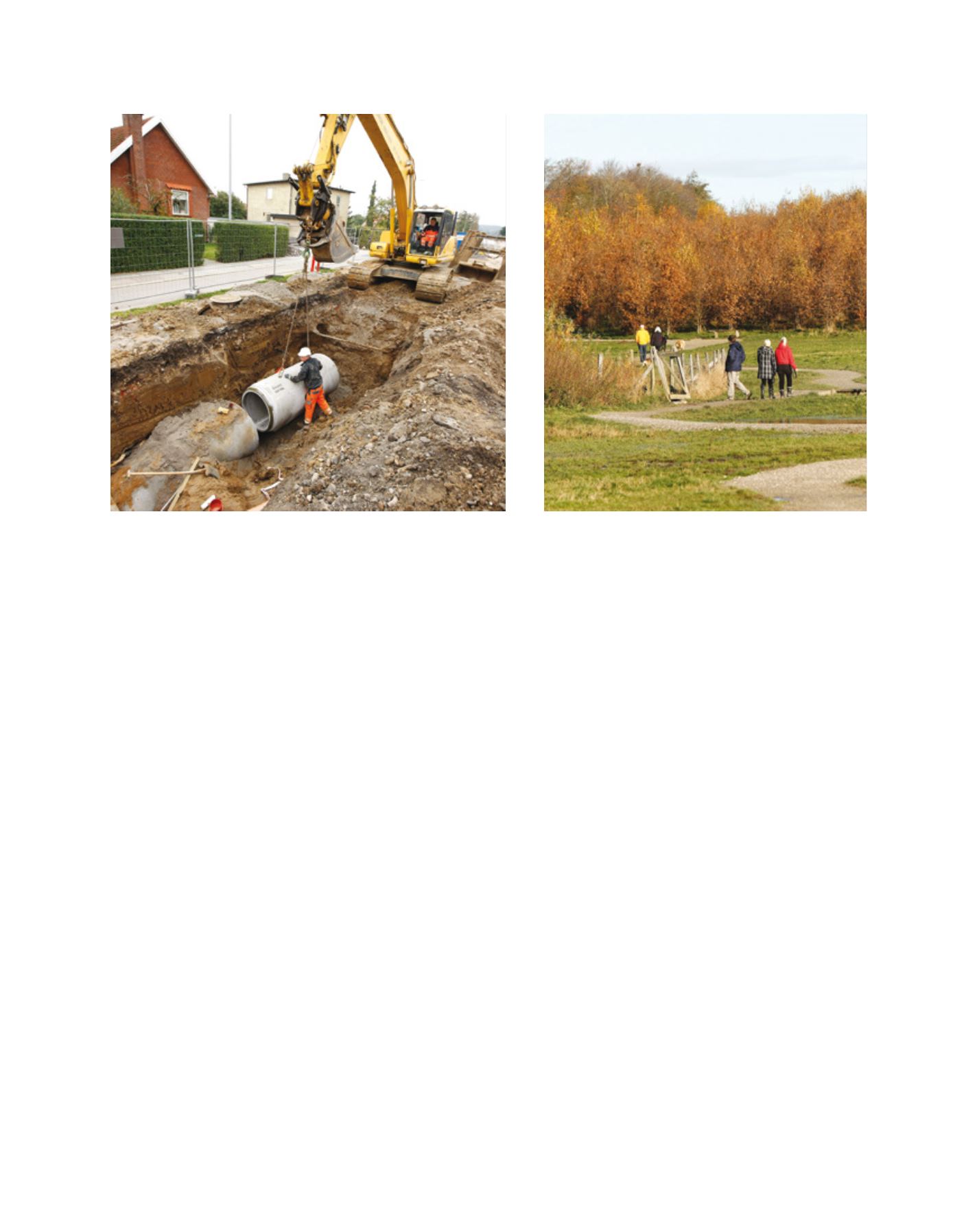

[
] 238
W
ater
C
ooperation
, S
ustainability
and
P
overty
E
radication
ture and more extreme events. The Prepared project
addresses the practical problems and decisions that the
urban water utilities have to deal with. In the project,
researchers, universities and technology suppliers work
together with urban utilities to produce an advanced
strategy to meet the future challenges for water supply
and sanitation brought about by climate change.
The Prepared project originates from the WSSTP
thematic working group, Sustainable Water
Management in Urban Areas. Over a period of five years,
Prepared will work with a number of urban utilities in
Europe and worldwide to develop advanced strategies to
meet anticipated challenges, brought about by climate
change, in the water supply and sanitation sectors. The
project will provide a framework that links comprehen-
sive research with development programmes in these
utilities. The Prepared vision will provide significant
synergistic opportunities that the utilities can use to
improve their preparedness for ongoing changes relat-
ing to the provision of water supply and sanitation.
Project outcomes will be used as input for the planning
and rehabilitation programmes of participating cities,
and the experience gained by the utilities will then be
shared with other players in the European water sector.
The ultimate objective is rehabilitation based on
concern for the environment and investment programmes
for water supply and sanitation systems (including storm-
water). The cities and utilities involved will be prepared
and resilient to the effects of climate change in the short
and long term. Implementation of the project started in
February 2010 and is expected to end in January 2014.
Three years into the project, Prepared has completed the
research and testing of solutions to challenges related to
Partnering
At a regional level, Aarhus Vand has used partnering since 2006 as a
cooperative way of working when renovating drainpipes, and since
2008 when renovating water mains. By cooperating in this way, the
company pulls together with its partners because all have agreed
on clear and common objectives. If the objectives are met, both
parties are due a cash bonus. This is cooperation based on dialogue,
trust and openness, and it keeps the company constantly focused on
development and improvements. Through structured knowledge-
sharing, the partners are focused on finding the right solution the
first time – in terms of both technology and process.
The results of this cooperative way of working speak for themselves.
Aarhus Vand’s documentation shows that partnering has brought
about a notable lowering of unit prices: 18 per cent on average on
drainpipes (after four years) and 7 per cent on average on water mains
(after two years). It has led to improved quality of the work, greater
satisfaction for citizens and improved cooperation, which means
that both Aarhus Vand’s employees and those of its partners are now
pursuing assignments that are carried out using partnering.
Prepared – Enabling Change
At a European level, Aarhus Vand and the consultancy and research
organization DHI head an international consortium called Prepared
– Enabling Change, which consists of 35 countries and partners.
The consortium is carrying out the largest collaborative environmen-
tal project in the European Union on the research and development
of technology for climate adaptation in the fields of water supply
and wastewater management. Its purpose is especially to exchange
knowledge and experience at the highest international level while
striving to halt the consequences of climate changes such as down-
pours and increases in temperature. The European water sector
needs to prepare itself for climate changes that may affect the sector
in different ways, such as flooding, droughts, changes in tempera-
Measures such as separating rainwater from wastewater help to improve water hygiene
Tree-planting helps to protect Denmark’s groundwater reservoirs
Image: Aarhus Vand
Image: Aarhus Vand


















